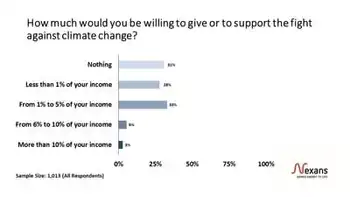Battery of questions over EVs
By Globe and Mail
CSA Z463 Electrical Maintenance -
Our customized live online or in‑person group training can be delivered to your staff at your location.

- Live Online
- 6 hours Instructor-led
- Group Training Available
All depend, at this stage, on lithiumion batteries. While this latestgeneration battery is lighter and contains more power per kilogram, cost continues to be a major hurdle.
Currently the cost of the batteries exceeds the potential fuel savings over the lifetime of a vehicle. The U.S. National Research Council estimates it costs $18,000 US more to produce a plugin hybrid electric vehicle than a conventional one. A breakthrough in battery technology will be necessary to make plugin electric vehicles affordable in the near future, it says.
In addition to the initial price, the replacement cost is high. Toyota, Honda and Ford offer eightyear warranties and replacement battery prices lie in the $2,000$3,000 range. Nissan is going to take a different approach with the Leaf, leasing the battery to the owner, making it possible to keep the cost of the car within the same range as a conventional one.
Much of the cost issue will be addressed through sheer numbers as volume and production increase, the cost per unit will decrease. But there are addition concerns.
The lithiumion battery is commonly used in cellphones and laptop computers. Compared to other rechargeable batteries, it has a decent power/weight ratio, but performance tends to deteriorate over time and eventually is not able to retain a charge after a few hundred charge cycles.
To tackle this problem, the companies have developed methods of managing how the batteries are charged, principally how often and how much.
One of the tricks being employed is to ensure the battery does not discharge too far and that it is not recharged to 100 per cent of capacity. Commonly the batteries operate in the 30 to 80 per cent range. GM says battery lifetime in the Volt will be 10 years or 150,000 miles with no noticeable deterioration.
Toyota has used a similar approach for the nickel/metal hydride batteries in the Prius. The control unit tries to keep the charge state at about 60 per cent, rarely letting it rise above 75 per cent or below 45 per cent.
Weight is the third problem and gains are being made in this area as well.
The next major hurdle is the infrastructure that will allow these batteries to be recharged everywhere form public parking spots to home and office. After all, none of these vehicles can run more than 100 kilometres or so without some sort of recharge, whether it be from an internal combustion engine in the vehicle or a plug, preferably one supplying 200volts.











